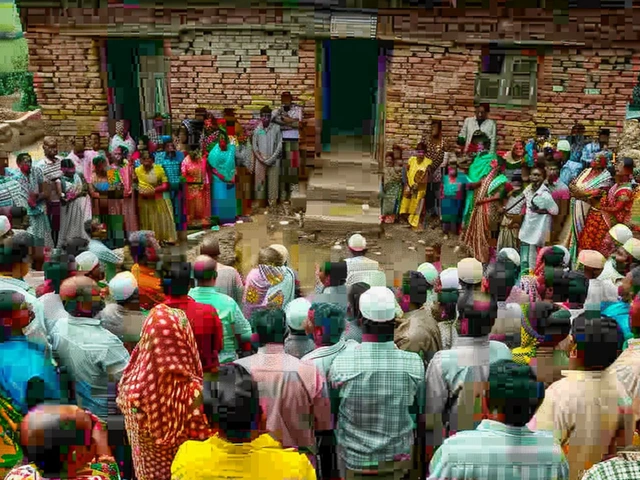Understanding the Gravity of Sexual Abuse Against Boys
Observed on the International Day of the Boy-Child, activists like Halima Layeni, founder and executive director of the Life After Abuse Foundation, draw our attention to a deeply troubling yet persistently neglected issue: sexual abuse against boys. This issue does not get the spotlight it deserves due to enduring stigma, misconceptions, and societal disbelief. However, the numbers, although likely underreported, paint a distressing picture. According to global statistics, approximately 1 in 6 boys worldwide experience sexual abuse before they reach adulthood.
Despite these statistics, the issue often remains in the shadows, with survivors facing skepticism and blame, which further perpetuates silence and shame. It's crucial to debunk the misconception that a boy’s physical response to abuse indicates consent or enjoyment. Biological reactions should not be misinterpreted; they do not diminish the trauma experienced by the victims. Sadly, these harmful myths contribute to a culture where male survivors feel discredited or are not taken seriously.
The Misconceptions and Their Consequences
The misunderstanding around male sexual abuse is widespread and deeply rooted in societal norms. One prevalent myth is the association of masculinity with invulnerability. This misbelief leads people to think that boys and men should be able to protect themselves against abuse or that the impact of such abuse should not affect them seriously. This cultural attitude has dangerous implications, as it silences many boys who experience abuse. If their voices are not heard, they might internalize the pain, leading to severe and long-lasting repercussions.
Many survivors face a range of mental health challenges, including depression, anxiety, post-traumatic stress disorder (PTSD), and difficulties in forming healthy relationships. The lack of recognition and support for male survivors exacerbates these issues, making it imperative to address this neglect urgently.
Need for Comprehensive Support Systems
Advocacy for male survivors is sorely needed. Establishing robust support systems is a vital step towards ensuring that boys who survive sexual abuse receive the necessary care and assistance. Current support services are woefully under-equipped to handle the unique needs of male survivors. Forums where they can safely express their experiences without fear of judgment or disbelief must be established. Alongside emotional support, access to professional mental health services specialized in dealing with male survival of sexual abuse is critical.
It's also crucial to train healthcare professionals to recognize the signs of abuse in boys. Often, these signs are dismissed or misinterpreted due to the ingrained stereotypes about masculinity and victimhood. Proper training can equip healthcare providers with the right tools to support their young male patients effectively.
Challenging Harmful Stereotypes and Promoting Awareness
The fight against sexual abuse of boys demands a cultural shift in the way society perceives masculinity and victimhood. Separate rigorous efforts to challenge and dismantle harmful stereotypes that contribute to the silence around male sexual abuse. By shifting societal attitudes, we pave the way for greater understanding and support for male survivors.
Parents and guardians play an integral role in this process. By fostering a home environment where open communication is encouraged, boys will feel more comfortable sharing their experiences and concerns. Teaching boundaries and encouraging children to speak up about uncomfortable situations can help prevent abuse and promote early intervention.
Policy Reforms and Legal Action
There is an urgent need for policies that specifically address the issue of sexual abuse against boys. Governments and policymakers must prioritize the well-being of all children, irrespective of gender, and create laws that protect boys just as fiercely as they protect girls. This includes setting up helplines, creating educational programs to raise awareness, and ensuring that the legal system is equipped to handle cases of male sexual abuse with the seriousness they deserve.
Furthermore, we need to push for changes that allow male survivors to come forward without fear of prejudice or disbelief. This includes amending legal definitions to ensure that any form of sexual abuse is promptly recognized and prosecuted regardless of the victim’s gender.
Conclusion: Paving the Way for Healing
The International Day of the Boy-Child serves as a crucial reminder of the long road ahead in addressing the issue of sexual abuse against boys. By raising awareness, challenging societal norms, fostering open communication, and advocating for robust support systems, we can begin to dismantle the walls of silence surrounding this issue. It’s everyone’s responsibility to ensure that boys are protected and that survivors of abuse receive the support they need to heal and thrive. No child, regardless of gender, should face their torment alone—our collective efforts can make a significant difference in their lives.






This is such an important topic... and yet, it’s so rarely discussed with the seriousness it deserves. I’ve seen boys in my own circle struggle silently, told to "just grow up" or "it’s not that bad." The biological response myth is dangerous-it’s not consent, it’s not weakness, it’s just biology. We need to stop minimizing their pain.
And yes, training for healthcare workers? Absolutely critical. I’ve heard stories of doctors dismissing signs because "boys don’t get abused like that." That’s not just ignorance-it’s negligence.
It is imperative that we, as a society, acknowledge the systemic underreporting and cultural suppression of male sexual abuse. The prevailing norms of masculinity, which equate emotional stoicism with strength, actively inhibit the disclosure of trauma. This is not merely a psychological issue; it is a public health crisis that requires institutional intervention. Educational curricula, legal frameworks, and therapeutic services must be restructured to accommodate the unique needs of male survivors. Without such structural reform, the cycle of silence will persist.
We need to talk about this more!!! 💪💙 Boys deserve safety too!! Let’s stop acting like trauma has a gender. I’ve seen boys cry in silence-no one tells them it’s okay to be hurt. Let’s build spaces where they can speak without shame. You’re not weak for surviving. You’re BRAVE. ❤️
I’ve known guys who were abused and never said a word. Not because they didn’t want to but because no one ever asked them the right way. The silence isn’t their fault. It’s ours. We don’t create safe spaces. We don’t listen. We just expect them to be fine
So let me get this straight-we’ll have a whole day for boys, but when one actually speaks up, we call him 'overdramatic' or 'not manly enough'? Classic. The real tragedy isn't the abuse. It's that we'd rather believe the myth than believe the kid.
Let’s turn this day into action. Not just hashtags. Not just articles. Real change. Train teachers. Fund hotlines. Put male survivor counselors in every school. Boys need to know someone’s listening. And if you’re reading this-you can be that someone. Start by listening. No judgment. Just presence. 🙌
I’m a survivor. I didn’t tell anyone for 12 years. I thought I was broken. I thought it was my fault. But I’m here now. And I’m not alone. You’re not alone either. It’s okay to heal. 🤍